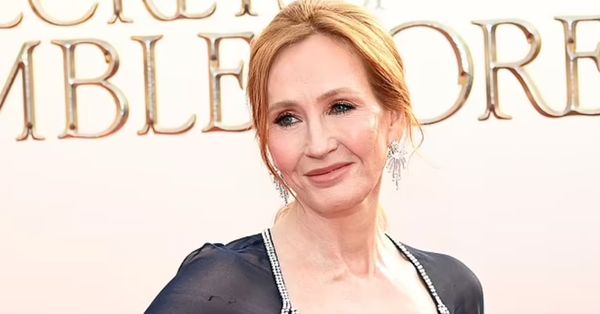J.K. Rowling, the beloved author of the Harry Potter series, has once again made headlines with her bold declaration. She fearlessly stated that she would willingly go to jail if a future UK Labour government were to criminalize the intentional use of incorrect pronouns for individuals. Rowling stands firmly for free speech and expresses concerns about what she sees as “compelled speech.”

The controversy erupted when The Mail on Sunday reported that the Labour Party was considering stricter penalties for those who engage in abuse targeting transgender individuals. Currently, deliberately misgendering someone is already classified as a hate crime if it is motivated by hostility towards the victim’s transgender identity. However, Labour’s proposed policy would result in even harsher consequences for offenders.
Under the proposed changes, misgendering could be deemed an “aggravated offense,” similar to race hate attacks, and perpetrators may face prison sentences of up to two years. Critics worry that this policy may inadvertently target gender-critical activists who refuse to use a transgender person’s preferred pronouns and continue to reference their birth sex.
Rowling entered the debate following an exchange on social media, where she defiantly responded to a user who claimed that voting for the Labour Party could lead to a two-year jail sentence. Rowling boldly stated, “I’ll happily do two years if the alternative is compelled speech and forced denial of the reality and importance of sex.”
In subsequent tweets, Rowling playfully pondered what her life might be like behind bars. She joked about hoping for a library and even mentioned her ironing skills, confessing to occasionally turning clothes pink. Labour MP Rosie Duffield, who has also faced criticism for opposing certain aspects of gender ideology, cheekily replied, “See you there, Jo!”
This is not the first time Rowling has become involved in the transgender rights debate. Just days prior, she had criticized senior Labour MP Lisa Nandy for her stance on trans rights. Rowling highlighted Nandy’s past statement suggesting that rapists who identify as women should be allowed in female prisons, questioning if Nandy still endorsed those remarks. This public exchange emphasized the deep divisions within the Labour Party regarding gender identity and women’s rights.
Rowling’s active participation in the debate reached its peak when she surprised attendees at the FiLiA event in Glasgow, a feminist conference targeted by trans rights activists. At the conference, she boldly declared her willingness to “take the hit” for defending women’s rights, emphasizing her ability to do so.
As one of the wealthiest authors globally, Rowling’s fortune was estimated at £857 million earlier this year, and her income continues to be boosted by royalties from the successful Hogwarts Legacy video game. She expressed deep concern about the mistreatment of women, highlighting how many have been bullied out of their jobs, silenced due to fear of losing their livelihoods, and subjected to harassment and assault. Rowling believes it is crucial for those with a platform to speak up for those who cannot.
While Rowling’s comments have sparked intense debate and garnered both support and criticism, the Labour Party has yet to directly respond to her remarks. Anneliese Dodds, the Shadow Women and Equalities Secretary for Labour, defended the party’s position, emphasizing their commitment to banning conversion therapy and strengthening laws against anti-LGBT+ hate crimes.
In conclusion, J.K. Rowling’s courageous stand against what she perceives as “compelled speech” and her willingness to face potential imprisonment have ignited a passionate discussion about freedom of speech, gender identity, and the rights of transgender individuals. Her involvement in the ongoing debate within the Labour Party and her unwavering stance on these issues have made her a controversial figure, with no clear resolution in sight. As the discussion continues to evolve, it remains a complex and polarizing topic in contemporary society.






